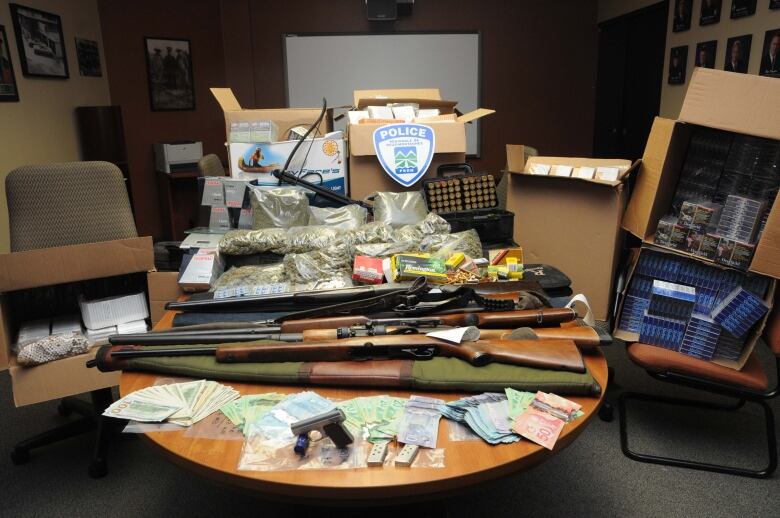Marijuana in Montreal: How legalization could shake up black market
Former drug squad officer says pot represents 50 per cent of illegal dealings the city

In the final instalment of Daybreak's "Montreal 420" series, a retired Montreal police officer discusses how legalization could change the city's illicit drug trade.
- THE COMPLETE SERIES: The future of legalized marijuana in Montreal
- Follow CBC Montreal on Facebook
Philippe Paul spent 28 years with the Montreal Police force, most of that working on the drug and anti-gang squad.
Paul is also an expert witness in narcotics trafficking cases and author of the book Coupable d'etre policier.

Here are key excerpts of his interview with Daybreak host Mike Finnerty.
How big is the illicit sale of marijuana ?

It's quite significant. Quebec-grown marijuana is in demand, in Canada and elsewhere in the world.
It's a very large part of organized crime. At least 50 per cent of the narcotics sold here in Quebec is marijuana.
What might happen if we legalize marijuana in two years time?

It will have to be controlled because the THC level in Quebec-grown marijuana is very high and it can become addictive. It has to be grown in a proper fashion. You can't just let anybody anywhere grow and sell it.
It will be difficult because it will always be readily available and grown by anybody.
What effect might legalization have on dealers?

That's the good part. If it's controlled, and grown by the government, that's one less valve open for organized crime. So that's less money for them, so they have to turn to other illicit drugs.
What do you think of legalizing marijuana?

Obviously, as a former police officer, I'm not for that. I was fighting crime and drug-trafficking all my career and seizing illicit drugs including marijuana.
But, as I said, the good part of it is that if that if the drug is legalized, at least that's one thing that you're taking out of the hands of organized crime and other dealers in and around Montreal and elsewhere.
What are some of the challenges of policing marijuana use?

I've intercepted people driving under the influence of narcotics, so obviously it's not like alcohol. Alcohol you can smell the breath, you can see it in the eyes. With marijuana, if you really want to prove it in court, you need a blood sample and you need a warrant to get that. It becomes very long and difficult.
Do you think legalization will reduce criminality in Montreal?

Not at all. Not at all. I don't think it will change a thing.
The interview has been edited for clarity.